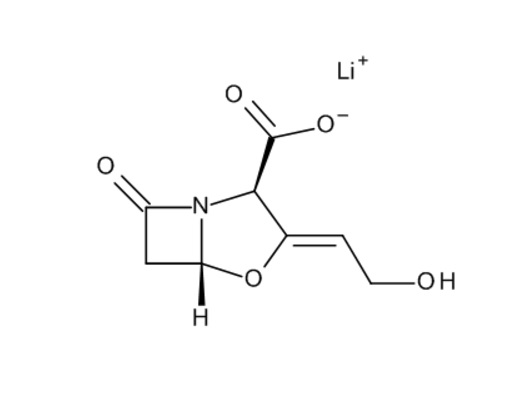ipilimumab
- CAS NO.:477202-00-9
- Molecular Weight: 0
- MDL number: MFCD01864202
- Update Date: 2024-11-19 20:33:22
What is ipilimumab?
Description
Ipilimumab is a CTLA-4 blocking antibody that was approved by the U.S. FDA in March 2011 for the treatment of unresectable or metastatic melanoma. Therefore, ipilimumab has an indirect effect on tumors that is mediated through blockade of CTLA-4 negative signaling and augmentation of T-cell activity. It is one of a handful of immunostimulatory drugs (e.g., aldesleukin and interferon alfa-2b) now approved for cancer therapy.
Originator
Bristol-Myers Squibb (United States)
The Uses of ipilimumab
Treatment of oncology disease and HIV infection.
brand name
Yervoy
Mechanism of action
Anti-CTLA-4 monoclonal antibodies like ipilimumab inhibit CD80 and CD86 on APCs forms binding to CTLA-4 on T cells. The resulting blockade of CTLA-4 signaling prolongs T-cell activation, restores T-cell proliferation, and thus amplifies T-cell-mediated immunity, which theoretically enhances the patient's capacity to mount an antitumor immune response. Cancer patients with reduced CTLA-4 expression have shown a more pronounced response to blockade of the CTLA-4 pathway and less likelihood of subsequent relapse[1].

Pharmacokinetics
Ipilimumab is a fully human monoclonal IgG1κ antibody. Limited pharmacokinetic data have been presented to date. However, a study of single-dose ipilimumab in patients with castrate-resistant prostate cancer showed that the pharmacokinetics of ipilimumab were consistent with other clinically used monoclonal antibodies tested in humans. The relatively long terminal half-life (12.5 days) means that a single dose of 3?mg/kg results in a serum concentration permitting dosing at 3–4 week intervals. Although the second-line, phase 3 trial used a dose of 3?mg/kg every 3 weeks for four doses without any maintenance, most trials initiated after 2006 use a dose of 10?mg/kg every 3 weeks for four doses and then one dose every 12 weeks for up to at least 3 years. The 10?mg/kg dose was selected based on superior clinical and pharmacokinetic data and a comparable safety profile[1].
Clinical Use
Antineoplastic agent:
Treatment of advanced (unresectable or metastatic)
melanoma in adults who have received prior therapy
Side Effects
The more common side effects of ipilimumab include Bloody, black, or tarry stools; bone pain; chest pain or tightness; constipation; cough; depressed mood; diarrhea; dry skin and hair; feeling cold; fever; hair loss; heartburn; hoarseness or husky voice; indigestion; itching, skin rash; muscle cramps; nausea; pain in the arms or legs; severe stomach pain, cramping, or burning; slowed heartbeat; sneezing; sore throat; trouble breathing; unusual tiredness or weakness; vomiting; vomiting of material that looks like coffee grounds, severe and continuing; watery or bloody diarrhea.
Drug interactions
Potentially hazardous interactions with other drugs
Live vaccines: risk of generalised infections - avoid.
Metabolism
Most likely removed by opsonisation via the reticuloendothelial system when bound to T lymphocytes, or by human antimurine antibody production.
References
[1] Ahmad Tarhini, David R Minor, Ernest Lo. “Releasing the brake on the immune system: ipilimumab in melanoma and other tumors.” Cancer Biotherapy and Radiopharmaceuticals 25 6 (2010): 601–13.
Properties of ipilimumab
| form | Liquid |
| color | Colorless to light yellow |
Safety information for ipilimumab
Computed Descriptors for ipilimumab
New Products
4-AMINO-TETRAHYDRO-PYRAN-4-CARBOXYLIC ACID HCL 4-(Dimethylamino)tetrahydro-2H-pyran-4-carbonitrile 4-Aminotetrahydropyran-4-carbonitrile Hydrochloride (R)-3-Aminobutanenitrile Hydrochloride 3-((Dimethylamino)methyl)-5-methylhexan-2-one oxalate 1,4-Dioxa-8-azaspiro[4.5]decane 5-Bromo-2-nitropyridine Nimesulide BP Aceclofenac IP/BP/EP Diclofenac Sodium IP/BP/EP/USP Mefenamic Acid IP/BP/EP/USP Ornidazole IP Diclofenac Potassium THOMAIND PAPER PH 2.0 TO 4.5 1 BOX BUFFER CAPSULE PH 9.2 - 10 CAP SODIUM CHLORIDE 0.1N CVS ALLOXAN MONOHYDRATE 98% PLATINUM 0.5% ON 3 MM ALUMINA PELLETS (TYPE 73) LITHIUM AAS SOLUTION 2-Bromo-1-(bromomethyl)-3-chloro-5-nitrobenzene 2-Bromo-3-nitroaniline N-(3-Hydroxypropyl)-N-methylacetamide 3-Bromo-6-chloropyridazine 4-ethyl-3-nitrobenzoic acidRelated products of tetrahydrofuran
You may like
-
 1-Methyl-6-oxo-1,6-dihydropyridazine-3-carbonitrile 98%View Details
1-Methyl-6-oxo-1,6-dihydropyridazine-3-carbonitrile 98%View Details
99903-60-3 -
 88491-46-7 98%View Details
88491-46-7 98%View Details
88491-46-7 -
 1823368-42-8 98%View Details
1823368-42-8 98%View Details
1823368-42-8 -
 2-(3-(tert-butyl)phenoxy)-2-methylpropanoic acid 1307449-08-6 98%View Details
2-(3-(tert-butyl)phenoxy)-2-methylpropanoic acid 1307449-08-6 98%View Details
1307449-08-6 -
 Ethyl 3-(furan-2-yl)-3-hydroxypropanoate 25408-95-1 98%View Details
Ethyl 3-(furan-2-yl)-3-hydroxypropanoate 25408-95-1 98%View Details
25408-95-1 -
 2-Chloro-5-fluoro-1-methoxy-3-methylbenzene 98%View Details
2-Chloro-5-fluoro-1-methoxy-3-methylbenzene 98%View Details
1805639-70-6 -
 1784294-80-9 98%View Details
1784294-80-9 98%View Details
1784294-80-9 -
 Lithium ClavulanateView Details
Lithium ClavulanateView Details
61177-44-4
